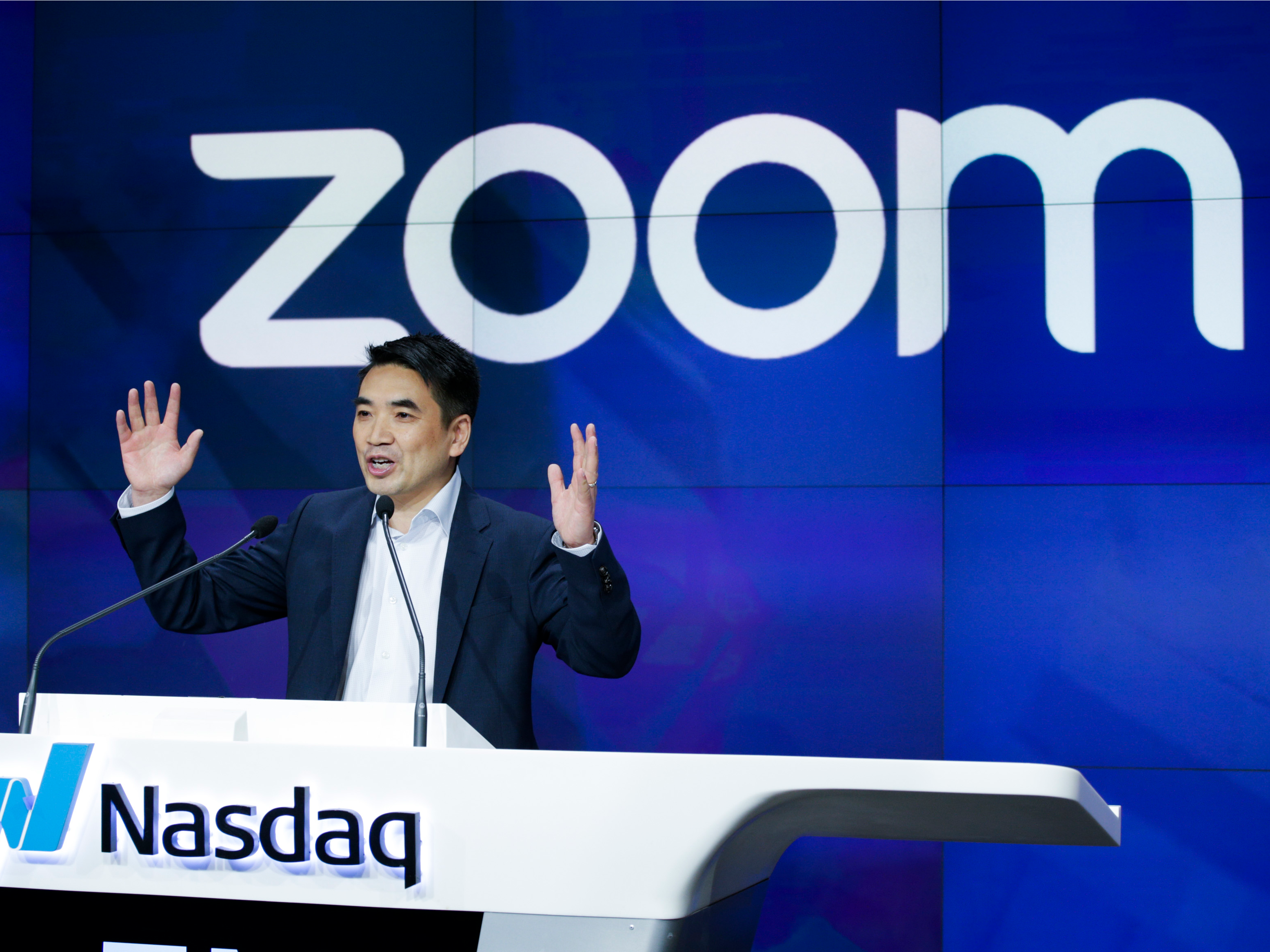- Eric Yuan, the founder and CEO of video conferencing startup Zoom Technologies, Inc., built a $35 billion video conferencing empire in nine years.
- The 49-year-old billionaire’s net worth jumped 112% to $7.57 billion in the past three months, as the rest of the world braces for an economic crisis caused by the novel coronavirus.
- The novel coronavirus has infected more than 887,000 people and killed more than 44,200 across the globe since being identified in Wuhan, China, in December.
- Visit Business Insider’s homepage for more stories.
The coronavirus crisis has eliminated millions of Americans’ sources of income, but not Eric Yuan’s.
Yuan is the founder of video conferencing app Zoom. Even before the outbreak of the novel coronavirus forced people to work and socialize primarily online, Zoom’s share price grew exponentially. Just one year after joining the three-comma club, Yuan has amassed a fortune of over $7.5 billion, according to the Bloomberg Billionaires Index.
Yuan declined to comment on his net worth, career, or personal life when reached by Business Insider, saying through a representative that he was busy working 18-hour days at Zoom.
Keep reading to learn more about Zoom billionaire Eric Yuan.
Eric Yuan, 49, is one of only a handful of Chinese Americans to lead a major Silicon Valley company.
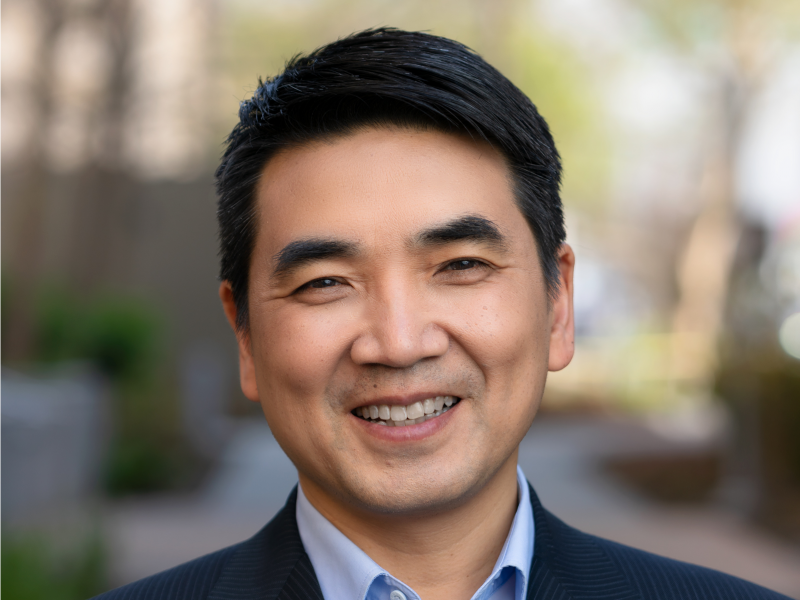
Yuan was born in China's Shandong province, according to The Financial Times. Yuan's parents were mining engineers, according to Forbes.
Yuan has an undergraduate degree in applied mathematics and a master's degree in engineering, Bloomberg reported. Yuan spent four years working in Japan after graduation but was inspired to move to California's Silicon Valley to work for an internet startup after listening to Bill Gates give a speech about the dot-com bubble, according to Bloomberg.
The United States denied Yuan's visa application eight times before allowing the future billionaire to move to California in 1997, Fortune reported. Yuan was 27 at the time, according to CNBC. Yuan told The Financial Times that he had a disagreement with the immigration official who processed his application.
Yuan has worked in teleconferencing since he arrived in the United States.

Yuan spoke little English when he first came to the United States, so he put all his attention on work, CNBC reported. "For the first several years, I was just writing code and I was extremely busy," Yuan said, according to CNBC. Playing pick-up soccer was one of Yuan's only hobbies during that time, according to Forbes.
Before founding Zoom, Yuan was a vice president at telecommunications equipment company Cisco Systems. Yuan worked for another videoconferencing company called WebEx that was acquired by Cisco in 2007.
Yuan got the idea for Zoom while trying to find a way to connect with his long-distance girlfriend.

Back when he still lived in China, Yuan and his girlfriend were enrolled in two different colleges that were separated by a 10-hour train ride, according to Fortune. The two later got married.
"I was only able to see her twice a year and it took more than 10 hours to get there by train," Yuan told Forbes in 2017. "I was young then - 18 or 19 years old - and I thought it would be fantastic if in the future there was a device where I could just click a button and see her and talk to her."
The experience gave Yuan the idea to incorporate video into telephone-based conferencing systems like Cisco's, Bloomberg reported. Yuan also wanted to make a more user-friendly conferencing system that was fun to use, according to CNBC. Zoom is known for its virtual backgrounds, which allows users to make it appear as if they are on the beach or in front of the Golden Gate Bridge.
Yuan initially struggled to find support for his video conferencing startup.
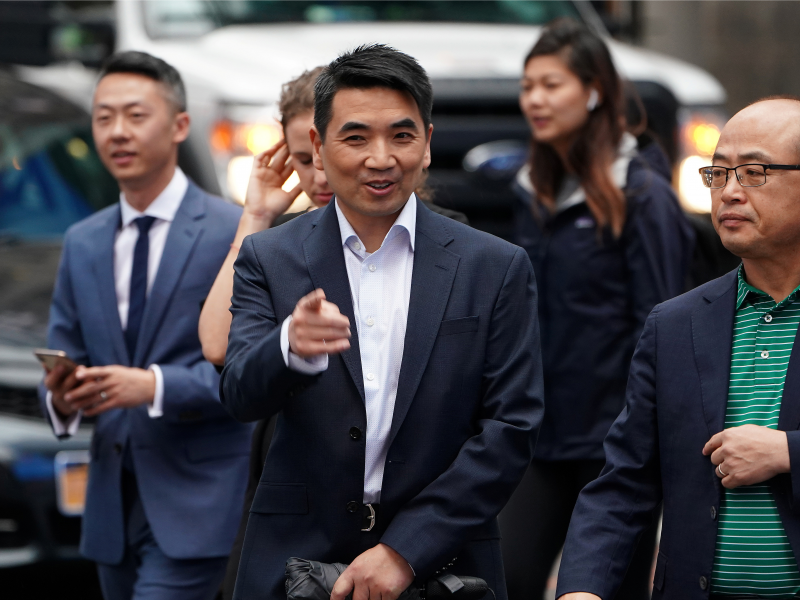
Yuan pitched Cisco a new, smartphone-friendly video conferencing system in 2011, The Financial Times reported. When his bosses shot him down, Yuan left Cisco to found Zoom.
"Cisco was more focused on social networking, trying to make an enterprise Facebook," Yuan told Forbes. "Cisco made a mistake. Three years after I left, they realized what I said was right."
Yuan also couldn't convince any investors to back his new venture, so he borrowed money from friends and family to launch Zoom, according to The Financial Times.
"They thought the market is so crowded, the game is over," Yuan told The Financial Times.
After receiving countless rejections, Yuan "changed his screensaver to 'It can't be done' and kept working," Santi Subotovsky, a partner at Zoom investor Emergence Capital, told CNBC in 2019.
Yuan's own wife initially questioned his decision to leave Cisco, Forbes reported. "I told her, 'I know it's a long journey and very hard, but if I don't try it, I'll regret it,'" Yuan told Forbes.
During Zoom's early days, the former engineer was involved in every part of the business — including customer service.

"During the early stages of Zoom, I personally emailed every customer who canceled our service," Yuan said in an interview with Thrive Global in 2017. "One customer replied to my note and accused me of sending auto-generated emails "impersonating" the CEO - he said Zoom was a dishonest company! I wrote back that the email was indeed from me, and that it wasn't generated by one of our marketing tools. He still didn't believe me, so I wrote back again and offered to meet him on a Zoom call right that minute to prove it was me writing the emails. That call never did take place, but he stopped accusing Zoom of being dishonest!"
Yuan became a billionaire after Zoom's initial public offering in April 2019.
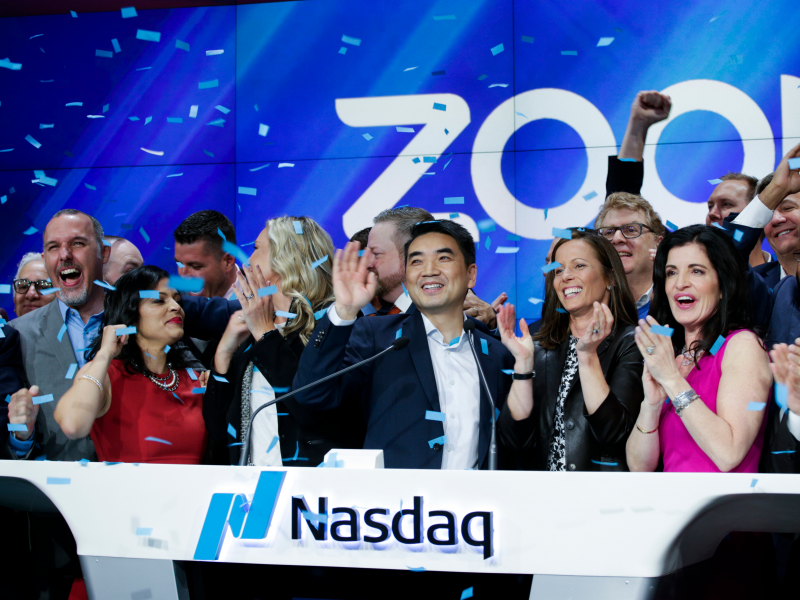
Zoom had one of the most successful IPOs of the year, making the company worth more than both Lyft and Pinterest, according to The Financial Times. Zoom's share price rose 72% on its first day of trading alone, Forbes reported.
The company is now worth $35 billion, The Financial Times reported. Zoom has over 30,000 corporate clients including Samsung, Uber, Walmart, and Capital One, according to Forbes.
Yuan is extremely popular with Zoom's employees.
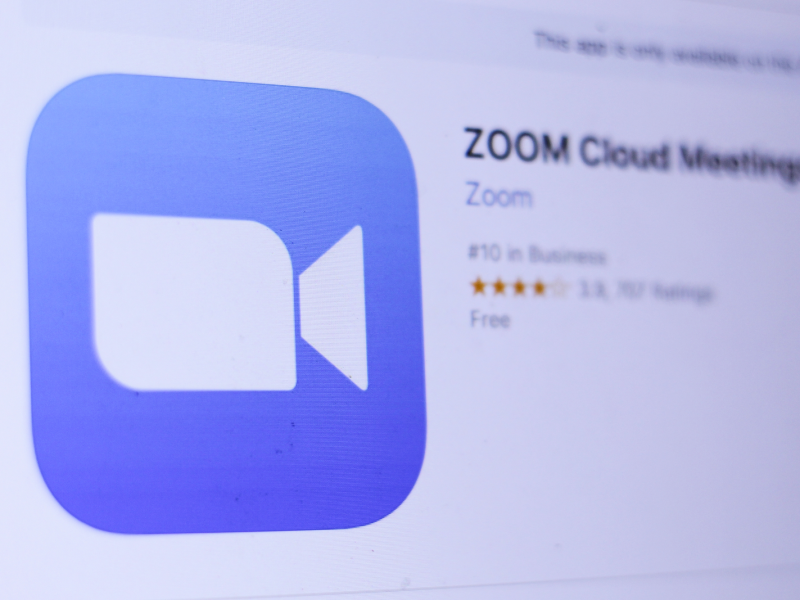
Yuan has a 99% approval rating from employees on workplace review site Glassdoor, according to CNBC. Glassdoor named Yuan its Big Company CEO of the Year in 2018.
Yuan lives by the motto "Hard work and stay humble," according to The Financial Times.
Yuan added more than $4 billion to his net worth in the past three months alone.

Usage of Zoom has grown 1,900% since December as schools, universities, and workplaces have shifted online as authorities across the globe have asked people to embrace social distancing in order to slow the spread of the novel coronavirus. Since being identified in Wuhan, China in December, the virus has infected over 887,000 people and killed more than 44,200 across the globe.
The value of Zoom shares has more than doubled in the past three months, sending Yuan's net worth up as well, according to the Financial Times. The majority of Yuan's $7.57 billion fortune derives from his 19% stake in Zoom, according to the Bloomberg Billionaires Index.
Yuan is now ranked No. 192 on Bloomberg's list of the 500 richest people in the world. Before 2020, he wasn't even on the list.
The pandemic-inspired work from home boom hasn't been all smooth sailing for Zoom, however.

Zoom's rising public profile led to increased scrutiny from the New York Attorney General's office over its data privacy practices. Attorney General Letitia James sent Zoom a letter Monday asking if Zoom had implemented any additional security protocols amid the coronavirus outbreak traffic spike.
Public Zoom calls have increasingly dealt with trolls joining and sharing graphic images, and online classes have faced people hijacking a meeting, in a phenomenon called "Zoom bombing." Zoom introduced a feature that allows meeting hosts to screen people before allowing them to enter the meeting to cut back on the disruptions, Business Insider reported.
"Zoom takes its users' privacy, security, and trust extremely seriously," Zoom said in a statement on the letter. "During the COVID-19 pandemic, we are working around-the-clock to ensure that hospitals, universities, schools, and other businesses across the world can stay connected and operational. We appreciate the New York Attorney General's engagement on these issues and are happy to provide her with the requested information."
Reports have also surfaced that Zoom didn't use end-to-end encryption for its video meetings and had leaked thousands of users' email addresses to strangers.

Yuan apologized for the problems in a blog post on Wednesday, writing "We did not design the product with the foresight that, in a matter of weeks, every person in the world would suddenly be working, studying, and socializing from home."
He added: "We recognize that we have fallen short of the community's - and our own - privacy and security expectations. For that, I am deeply sorry, and I want to share what we are doing about it."
Yuan announced a series of measures to help make Zoom more secure, including bringing in outside experts, expanding the company's "bug-bounty program" (in which tech companies offer cash rewards to ethical hackers who find issues with the company's security system), and holding weekly conferences to update people on the company's progress.
Source: Business Insider
Despite his undoubtedly busy schedule, Yuan is a committed father.

Yuan was highly involved in his oldest son's basketball career, the younger Yuan's former coach told CNBC in 2019.
"Out of a team of 15 kids, Eric was the most involved parent from day one," Gabe Fodor told CNBC. "A lot of these CEOs and founders barely have time to hang out with their kids. This guy didn't only go to the games, but he was at the practices."
Yuan did occasionally take meetings on Zoom while attending his son's games, however. "I set the background as the Santa Barbara beach, and they all thought I'm there," Yuan told Forbes. "After the meeting, I swipe," revealing a sweaty high-school gym. "And they all say, 'What?'"
Yuan lives in a wealthy Silicon Valley suburb with his wife and their three kids.

The couple has two sons and a daughter, according to Bloomberg.
The family lives in Saratoga, California, The Telegraph reported. It's one of the richest places in Silicon Valley, Business Insider reported in 2014.
Yuan almost never travels.

Yuan now uses Zoom for almost all his meetings and tries to limit business trips to two a year in order to spend more time with his family, according to The Financial Times. He is also conscious of airplane travel's impact on climate change, The Telegraph reported.
Yuan took only eight work trips in the five years before Zoom's IPO in 2019, according to Forbes.
"Customers have always said, 'Eric, we'll become your very important customer, you've got to visit us,'" Yuan told Forbes. "I say, 'Fine, I'm going to visit you, but let's have a Zoom call first.' Yuan almost never follows through with the visit, he told Forbes.
Unlike other members of the three-comma club, Yuan doesn't live a flashy lifestyle.

Yuan shares an office in Zoom's headquarters with chief product office Oded Gal, Forbes reported.
Yuan does drive a Tesla, however, according to Forbes. And Tesla is one of Zoom's customers.
While Yuan says his newfound wealth doesn't particularly excite him, he is eager to see what he hopes will be a permanent change in the way we work.
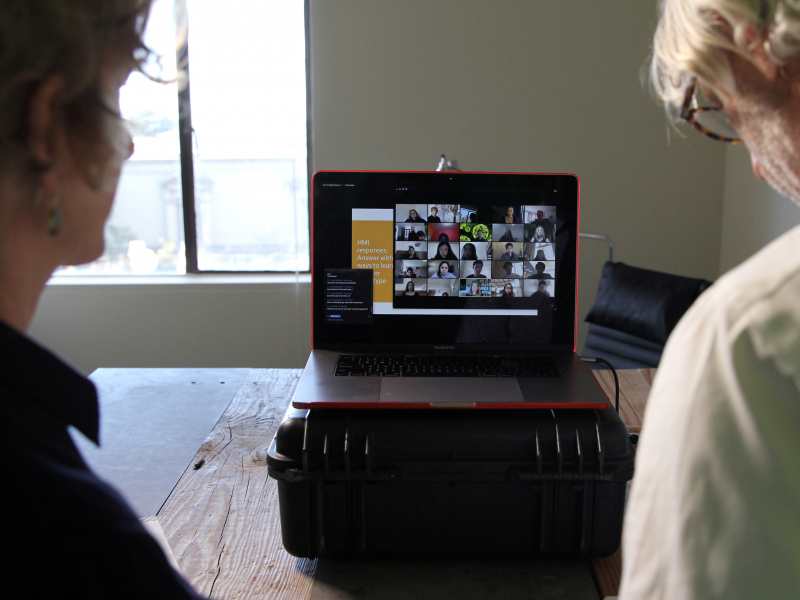
"If I was 25, maybe I would be very excited," Yuan told The Telegraph about his newfound wealth. "But those things don't have any impact on me. Money is not going to bring me happiness."
Yuan told The Telegraph that he is more excited by the possibility of convincing more people to embrace remote work. "Millennials grew up realizing that they can get the job done without having to go to the office," Yuan told The Telegraph. "Give it maybe 10 years and the millennials become the leaders and then it will become very common. Coronavirus is just a catalyst. Sooner or later this is going to be normal because the world does not belong to us anymore, it belongs to the younger generation."
